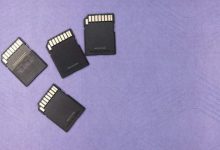Latest Articles
-
Apr- 2022 -30 AprilMicrobiology
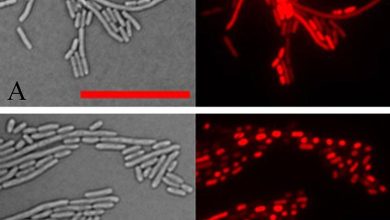
Plant Protein Kills Bacterial Cells – New Model for Antibacterial Mechanism Could Result in New Antibiotics
Lead Image: Light microscope images of E. coli cells in transmitted light (left) and reflected light that picks up the red fluorescence of a dye staining the cells’ DNA (right). In normal cells (upper panel), the DNA is spread throughout the cells. But in cells expressing the aberrant plant protein identified in this study (bottom panel) all the DNA within each cell has collapsed into a dense mass. DNA condensation also occurs after bacteria have been treated with aminoglycoside antibiotics. Credit: Brookhaven National Laboratory Discovery of an aberrant protein that kills bacterial cells could help unravel the mechanism of certain…
Read More » -
29 AprilSpace
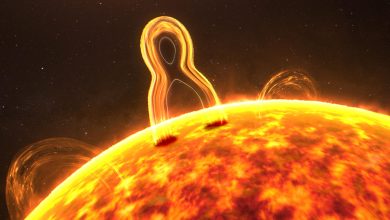
Rapid Magnetic Explosions in Space: Explaining Mystery Behind Fast Magnetic Reconnection
Lead Image: Solar flares and coronal mass ejections on the sun are caused by “magnetic reconnection”—when magnetic field lines of opposite directions merge, rejoin, and snap apart, creating explosions that release massive amounts of energy. Credit: NASA Conceptual Image Laboratory Researchers identify the physics that enables rapid magnetic explosions in space. When magnetic field lines of opposite directions merge, they create explosions that can release tremendous amounts of energy. The merging of opposing field lines on the sun creates solar flares and coronal mass ejections, which are massive blasts of energy that can travel to Earth in less than a…
Read More » -
27 AprilQuantum Computing
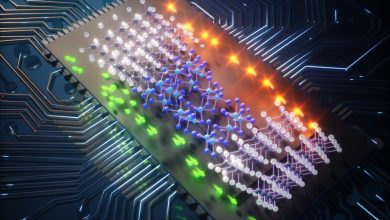
Breakthrough Discovery of the One-Way Superconductor – Thought To Be Impossible
Lead Image: Artist Impression of a superconducting chip. Credit: TU Delft Associate professor Mazhar Ali and his research group at Delft University of Technology (TU Delft) have discovered one-way superconductivity without magnetic fields, something that was thought to be impossible ever since its discovery in 1911 – until now. The discovery, published in the journal Nature, makes use of 2D quantum materials and paves the way toward superconducting computing. Superconductors can make electronics hundreds of times faster, all with zero energy loss. Ali: “If the 20th century was the century of semiconductors, the 21st can become the century of the…
Read More » -
18 AprilEnergy
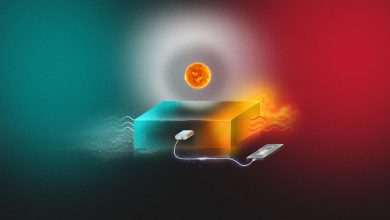
Capturing Solar Energy and Converting It to Electricity When Needed – Up to 18 Years Later
Researchers have taken a step forward in developing an energy system that makes it possible to capture solar energy, store it for up to 18 years, and release it when and where it is needed. They have now succeeded in getting the system to produce electricity by connecting it to a thermoelectric generator, after previously demonstrating how the energy can be retrieved as heat. Credit: Chalmers University of Technology | Daniel Spacek, neuroncollective.com The researchers behind an energy system that makes it possible to capture solar energy, store it for up to eighteen years, and release it when and where…
Read More » -
14 AprilAstronomy
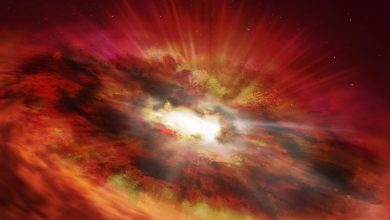
Hubble Uncovers Bizarre, Evolutionary Missing Link From the Dawn of the Universe
Lead Image: This is an artist’s illustration of a supermassive black hole that is inside the dust-shrouded core of a vigorously star-forming “starburst” galaxy. It will eventually become an extremely bright quasar once the dust is gone. The research team believes that the object, discovered in a Hubble deep-sky survey, could be the evolutionary “missing link” between quasars and starburst galaxies. The dusty black hole dates back to only 750 million years after the big bang. Credit: NASA, ESA, N. Bartmann Bizarre, Evolutionary Missing Link Uncovered in Hubble Deep Survey of Galaxies The universe is so saturated with galaxies that…
Read More »








